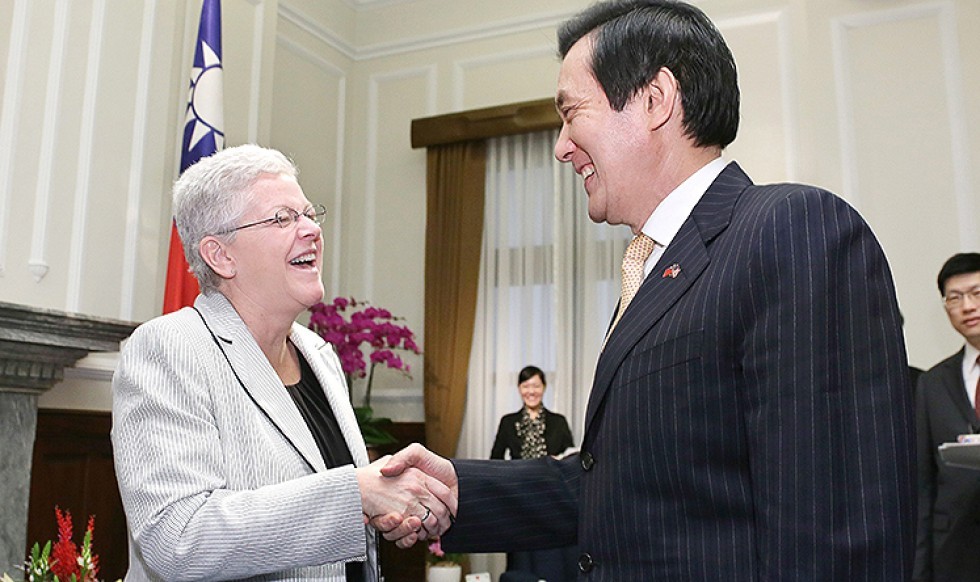
5 Faulty Assumptions About Taiwan
March 10, 2014
America’s Allies and Nuclear Arms: Assessing the Geopolitics of Nonproliferation in Asia
May 6, 2014By Sabrina Tsai |
Quiet Engagement
In Washington, government-to-government, military-to-military, and people-to-people interactions with the Republic of China (ROC; or Taiwan) have been relatively quiet due to long-standing policy practice and growing attention being focused on the People’s Republic of China (PRC; or China). However, as a friend of the government and people of Taiwan, the US should do a better job at publicizing its engagement efforts with Taiwan, such as the separate visits made by three deputy assistant secretaries from the Departments of State and Commerce during the last week of March and this week’s Cabinet-level visit by the Administrator of the Environmental Protection Agency (EPA). Indeed, Washington should reconsider its past and current approach of keeping engagements with Taiwan quiet and low-key. US interlocutors should be open and transparent in their dealings with Taiwan in order to highlight meetings as routine and normal interactions. This would contribute to a better understanding of US-Taiwan relations among the general public as well as the policy community and help avoid the risk of the security and trade partnership being undermined by the strengthening of US-China ties.
Why Publicize US-Taiwan Engagement Efforts?
US-Taiwan cooperation is an important part of peace and stability in the Asia-Pacific. People-to-people, government-to-government, and military-to-military exchanges have the power to shape and color public perceptions not only in the US and Taiwan, but also in the PRC. Knowledge and perceptions of US-Taiwan engagement have influence over how policymakers think in Washington, Taipei, and Beijing, and could create misperceptions if the basic facts of US-Taiwan engagements are unknown due to the information being under-publicized or not readily available to the general public. While some may argue that US-Taiwan cooperation should be kept quiet and under-the-radar due to both Beijing’s sensitivities toward Taiwan and Washington’s aversion to political pressure from China (such as that experienced by US administrations when congressional notifications of Taiwan arms sales are delivered), the near silence that characterizes US-Taiwan efforts of cooperation has born several negative effects.
First, ROC officials and leaders are left to wonder about the strength and vitality of the US commitment to assist Taiwan’s defense needs vis-à -vis China’s growing military strength and capabilities across the Strait. The reluctance of US leaders to publicly announce engagements with Taiwan make the impression that the US could waver from its commitments outlined in the 1979 Taiwan Relations Act and Reagan’s “Six Assurances†to assist in meeting Taiwan’s defensive capability needs.
Second, the general public as well as more seasoned observers in both the US and in the region are likely to have the perception that US ties with Taiwan are negligible in comparison to US ties with the PRC. The quietness of US-Taiwan cooperation amidst of growing publicity for US-China engagements create the misperception that the US may abandon Taiwan in future conflict scenarios across the Taiwan Strait in favor of closer ties with mainland China. US security commitment to Taiwan under the TRA should be reaffirmed to public observers by steps to boldly publicize US-Taiwan efforts of cooperation.
Third, the quietness of US-Taiwan engagements has a negative effect on US-China relations by creating the misperception that US support for Taiwan is weak. The importance for Washington to signal its support for Taiwan to Beijing by publicizing regular engagements with Taipei cannot be overstated. Increased publicity of regular interactions helps to counter the object of Chinese political warfare aiming to shape public perceptions about US-Taiwan relations favorable to Chinese dispositions. As a vibrant democracy with 23 million people and an important trade partner, Taiwan matters to the US, a fact that cannot be undermined as Washington works on closer cooperation with leaders of the Chinese Communist Party (CCP). The quietness of US-Taiwan interactions gives Beijing the impression that Washington is willing to compromise its security partnership with Taiwan, hence emboldening Chinese activities in the region. With territorial disputes in the East China Sea and South China Sea ongoing, Washington cannot afford to edge China on to more aggressive behavior through the People’s Liberation Army (PLA) that would jeopardize regional stability.
Looking Forward
Despite concerns of over-publicizing US-Taiwan engagement, the US should work to be more open and transparent in its dealings with Taiwan, highlighting regular meetings as normal interactions for two legitimate governments. Due to the heavy emphasis on US-China engagement efforts reflected by the media and the policymaking community, scarce public attention given to US-Taiwan engagement coupled by a low-key disposition of US policymakers on Taiwan have contributed to little attention being cast on one of the most important security partnerships in the Asia-Pacific region.




